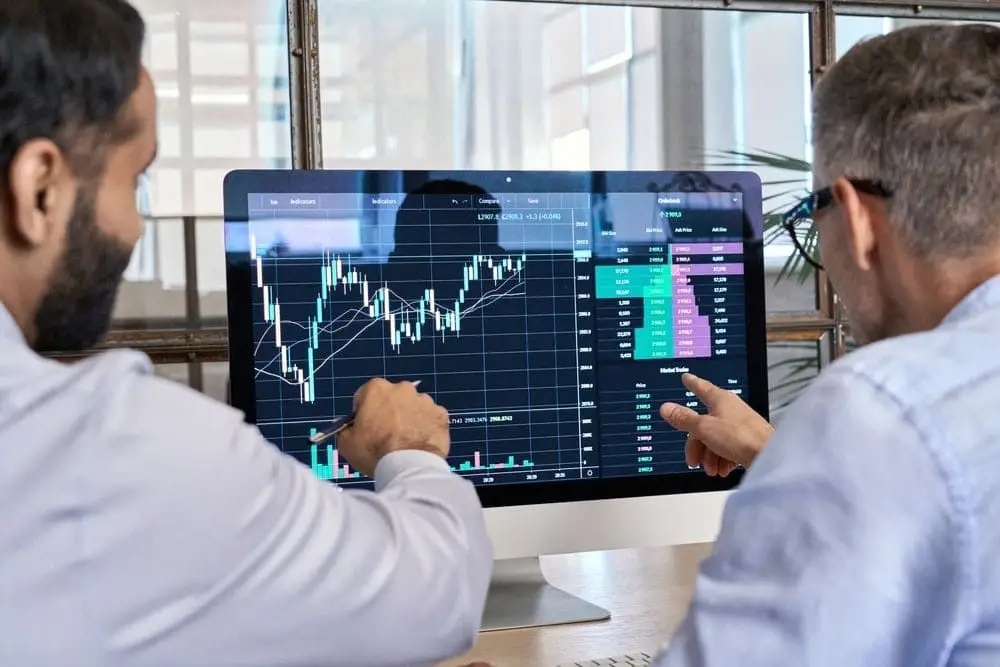In the financial ecosystem, there are corners where traditional rules do not apply. One of these is over-the-counter trading. If you are looking for new approaches to investments and want to understand how to profit on the OTC market, it’s time to go beyond standard platforms.
OTC (Over-the-Counter) is a format of asset trading outside centralized exchanges. There is no usual publicity here, but there is access to unique contracts, emerging companies, and rare financial instruments. It may seem opaque to beginners, but the alternative market becomes a source of high-risk and potentially profitable investments.

What is the essence of decentralized trading and who is drawn to it?
To understand how a newcomer can profit on the OTC market, it is necessary to grasp the difference between exchange and over-the-counter markets. OTC involves transactions directly between two parties, often through intermediaries. There is no automated platform here that guarantees equal conditions and instant liquidity. However, there is room for individual agreements.
For beginners, the over-the-counter market provides access to early rounds of startups, undervalued assets, and securities of companies that have not yet gone public. It is especially interesting for those who seek access to unique assets ahead of others.
Analytics as Skill #1
A newcomer entering the OTC market cannot rely on guesswork. There are no familiar charts and reports here – you will have to dig deeper. To understand how to profit on the OTC market without losses, you need to independently study projects: who is behind them, what are the product’s prospects, is there a team, clients, development plan.
Financial documents, white papers, company history, business model – all become the basis for decision-making. Without analytics, the OTC space turns into a lottery with low chances of winning.
What to Pay Attention to When Starting on OTC?
Beginners often overlook key details that lead to financial losses. So here is a list of basic guidelines:
- Assess the legal transparency and availability of documentation;
- Clarify the risks associated with the project or asset;
- Check for a minimum amount of information about the issuer;
- Pay attention to communication channels with project representatives;
- Find out if there are ways to protect the contract: escrow, agreement, platform.
Understanding the factors at the start will prevent typical mistakes and create a reliable foundation for future steps.
How to Profit on the OTC Market: Popular Strategies
To learn how to profit on the alternative market, it is important to define a strategy that matches your level of experience and risk tolerance. Let’s consider several working models:
- Long-term investments in promising startups at the pre-seed and seed stages;
- Participation in pre-IPO rounds focusing on future monetization after going public;
- Buying tokens in private sales for subsequent resale;
- Trading securities of small companies in secondary issuances;
- Engaging in option transactions between private investors.
Each strategy has its specifics, and to understand how to profit on the OTC market, it is important not to chase quick results but to build a long-term and balanced strategy.
How Deals Are Made on the OTC Market and What to Focus On?
Private contracts are almost always a matter of trust. Without exchange guarantees, special attention must be paid to every detail. Sometimes a contract is formalized, sometimes a smart contract is used. Platforms like Carta or Seedrs provide minimal transparency, but outside of them, all responsibility lies with the participants.
Before transferring money or receiving an asset, ensure the presence of a legal basis, fixed value, compliance with agreement conditions, and the ability to verify the identity of the other party. Any carelessness in documentation is a direct path to investment loss.
Advantages of OTC for Private Investors
Despite increased risks, investing in the OTC market continues to attract those who seek high profitability and are willing to make decisions independently.
One of the key advantages of the OTC market is access to purchasing assets not available on traditional exchanges. This format opens the door to investing in projects with high growth potential long before they hit the mass market.
Additionally, transactions on the decentralized market allow for flexible adjustment of conditions: investment volume, fixation period, participation model, and even legal formalities.
Early access to promising companies is another strong argument in favor of OTC. Investors get the opportunity to enter a project at a stage when the valuation is not inflated yet, and the growth potential can be significant.
All these features make the OTC approach relevant and promising – especially in conditions of high competition on traditional platforms, where attractive assets are becoming increasingly inaccessible.
How Not to Lose Money: Recommendations from Experienced Investors
Financial success in OTC almost always depends on discipline and common sense. Novices’ mistakes are repeated with remarkable consistency: from blind faith in a project to lack of documentation. To understand how to profit on the OTC market, it is worth not only seeking strategies but also considering important recommendations:
Firstly, do not invest large sums in unknown assets without analysis. Secondly, avoid projects promising “guaranteed returns.” Thirdly, always formalize the deal legally. Fourthly, create a portfolio instead of putting everything into one asset. And fifthly – do not rush: it’s better to miss an opportunity than to invest blindly!
Law, Taxes, and Protection – Often Overlooked Aspects
In the pursuit of high profitability, newcomers often forget about the legal side. And it’s a mistake. Many OTC transactions are subject to taxes, especially if you invest in foreign companies. It is also important to understand which contracts are being signed and how legitimate they are in your jurisdiction.
Legal preparation distinguishes those who simply seek profit from those who systematically build investments in the OTC market. If in doubt, consult a lawyer before the contract, not after a conflict.

How to Profit on the OTC Market: Conclusions
A successful investor does not aim for quantity of transactions. Their goal is in the quality and accuracy of decision-making. The answer to how to profit on the OTC market does not lie in aggressive actions but requires a deep understanding of market mechanisms, careful risk assessment, preparation, and strategic thinking.
Working with over-the-counter instruments, including stocks, requires a conscious approach: there are no ready-made templates or guarantees, but such an environment shapes professional market participants. Those who can recognize potential at an early stage and convert it into sustainable results gain a significant advantage – both in profitability and in developing their own investment approach.
 en
en  ru
ru  de
de  ar
ar  es
es  nl
nl  hi
hi  fr
fr  it
it  pt
pt  el
el 











